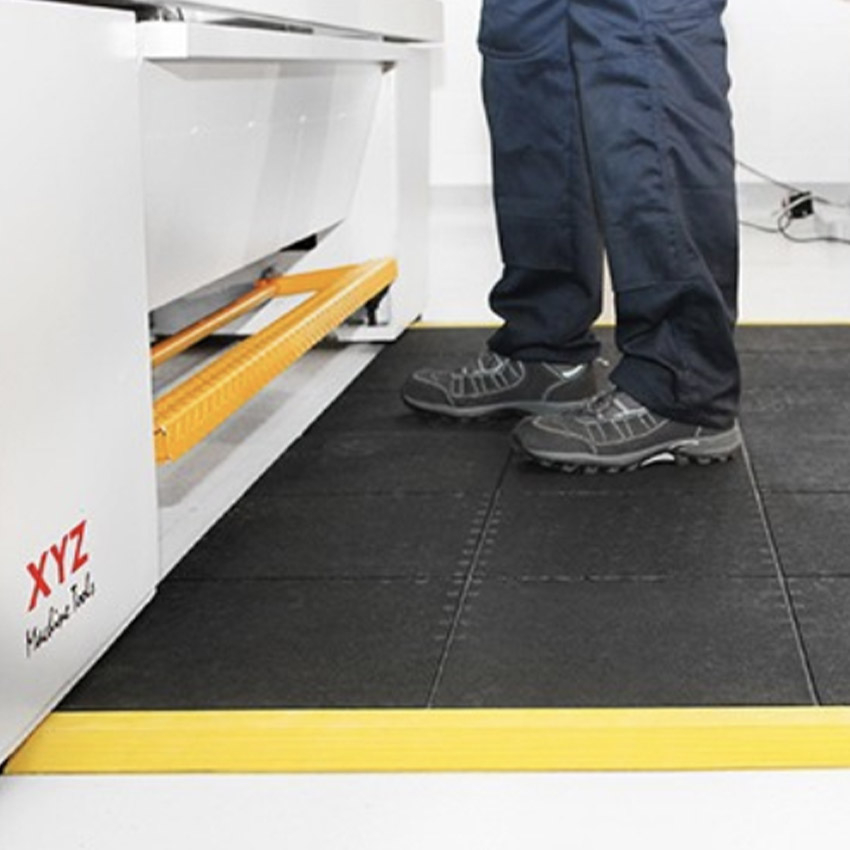













Anti-fatigue tiles for large workshops exposed to oily products. Modular, these tiles assemble to form a very comfortable anti-fatigue mat, easy to install and replace in the event of damage to one of the tiles. Resistant to temperatures up to 160ºC and molten glass spills. Fully tested against fall hazards.
Two options available for 90 cm x 90 cm main slabs
Standard
Nitrile rubber / B1
The nitrile rubber version offers excellent resistance to oily products, chemicals and grease. B1 version tested to BS EN 1350.
Optional sloping edges in yellow or black.
Resistant to welding spatter and spills of other hot materials.
Solid surface modular tiles available in two versions:
Cleaning: Brushing / Washing / Vacuuming / Pressure washing - mild detergent only if necessary.
Suitable for wet and dry environments. Resistant to welding spatters and spills of other hot materials.
Ideal for anti-slip and fatigue relief in all industrial areas.
Free-laying by interlocking tiles.
Bevelled edges / corners.

| SOLIDFATIGUESTEP |
Data sheet
| Format | Slabs |
| Surface | granular |
| Properties | Anti-fatigue Fire resistant Non-slip |
| Thickness | 16 mm 18 mm |
| Fire classification | Cfl-s1 |
| Resistant to chemicals | Yes |
| Environment | Dry environments Oily environments Wetlands |
| Operating temperature | |
| Intensity of use | Intense |
| Wear index | 3/3 (Excellent) |
| Anti-slip classification | R10 |
Industrial mats meet the needs of ergonomic workstations and employee well-being.
They prevent:
There are many uses for industrial mats:
Safety criteria: The mat must cover the entire workstation, be firmly attached to the floor, not shift or slide, and have bevelled edges to prevent falls.
Thickness and flexibility criteria: Contrary to what you might think, you shouldn't choose a very thick or very soft mat. The mat should have a certain elasticity, but still allow a comfortable standing position, without the user feeling slumped.
Environmental criteria :
Environmental hazard criteria : To establish more precise characteristics for a mat (antistatic properties or fire resistance etc...) we need to take into account the hazards present in the environment where the mat will be installed.
Where hazardous liquids are present in the working environment, the anti-slip properties and chemical resistance of industrial mats should be taken into account. The presence of openings on mats to allow the evacuation of fluids is essential.
Traffic criteria: We need to take into account the traffic that takes place on the equipment: how many workers can walk on it? How often, etc., in order to choose the most suitable mat.
Prevent the many problems associated with poor workstation ergonomics: RSI, static shock, bacterial proliferation, etc.
We offer a wide choice of industrial mats: on rolls, in standard sizes, made-to-measure or modular mats to suit all types of workstations.